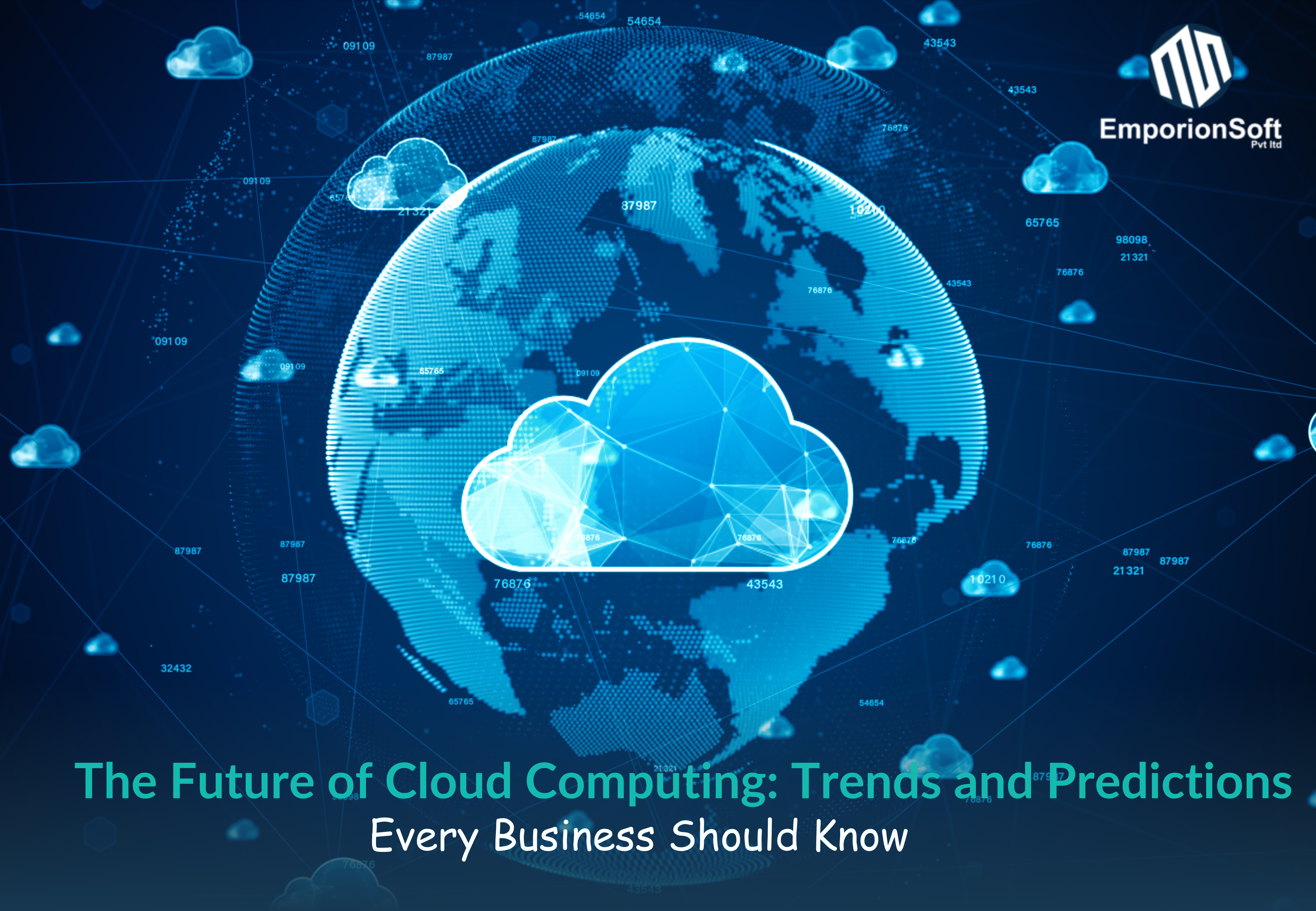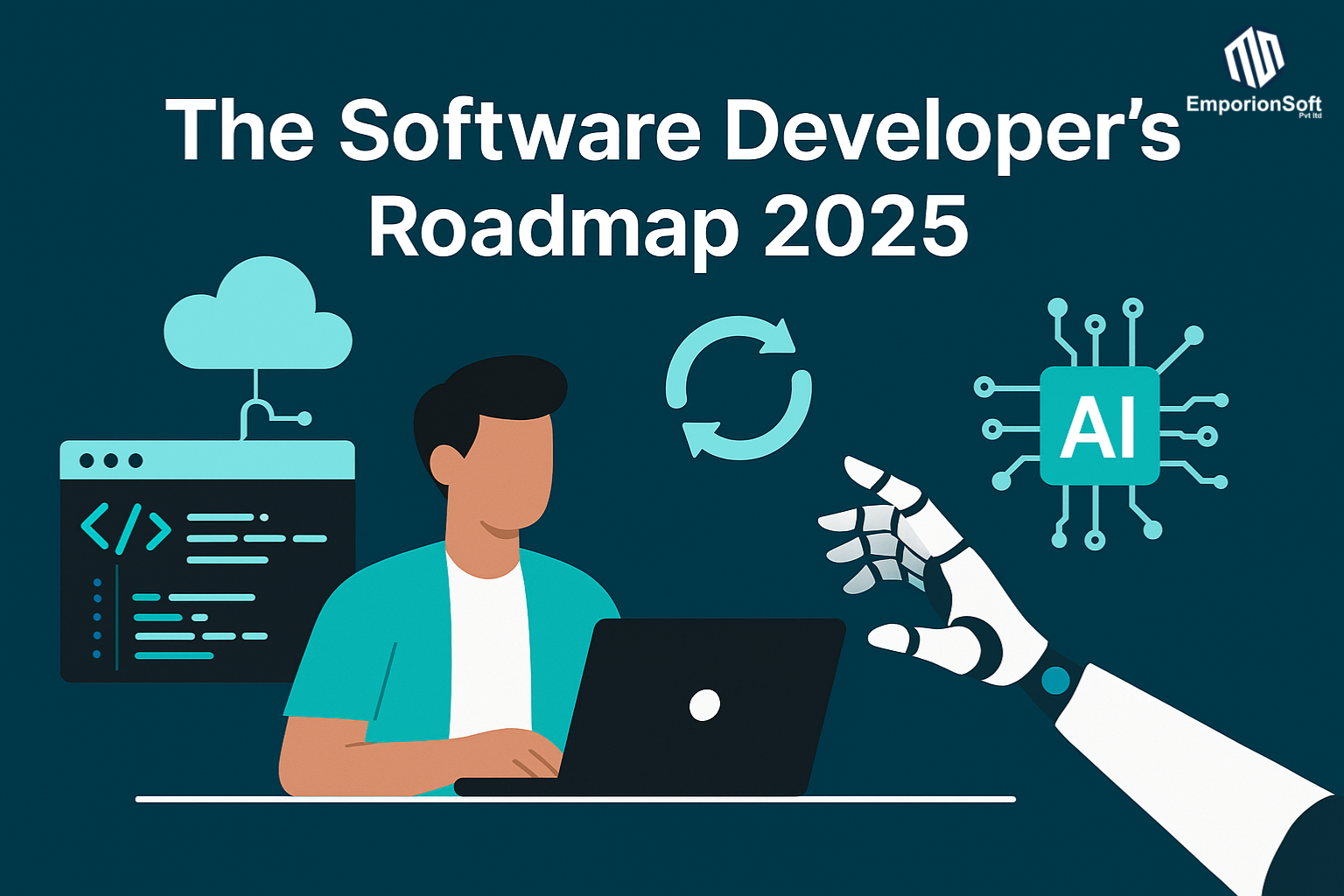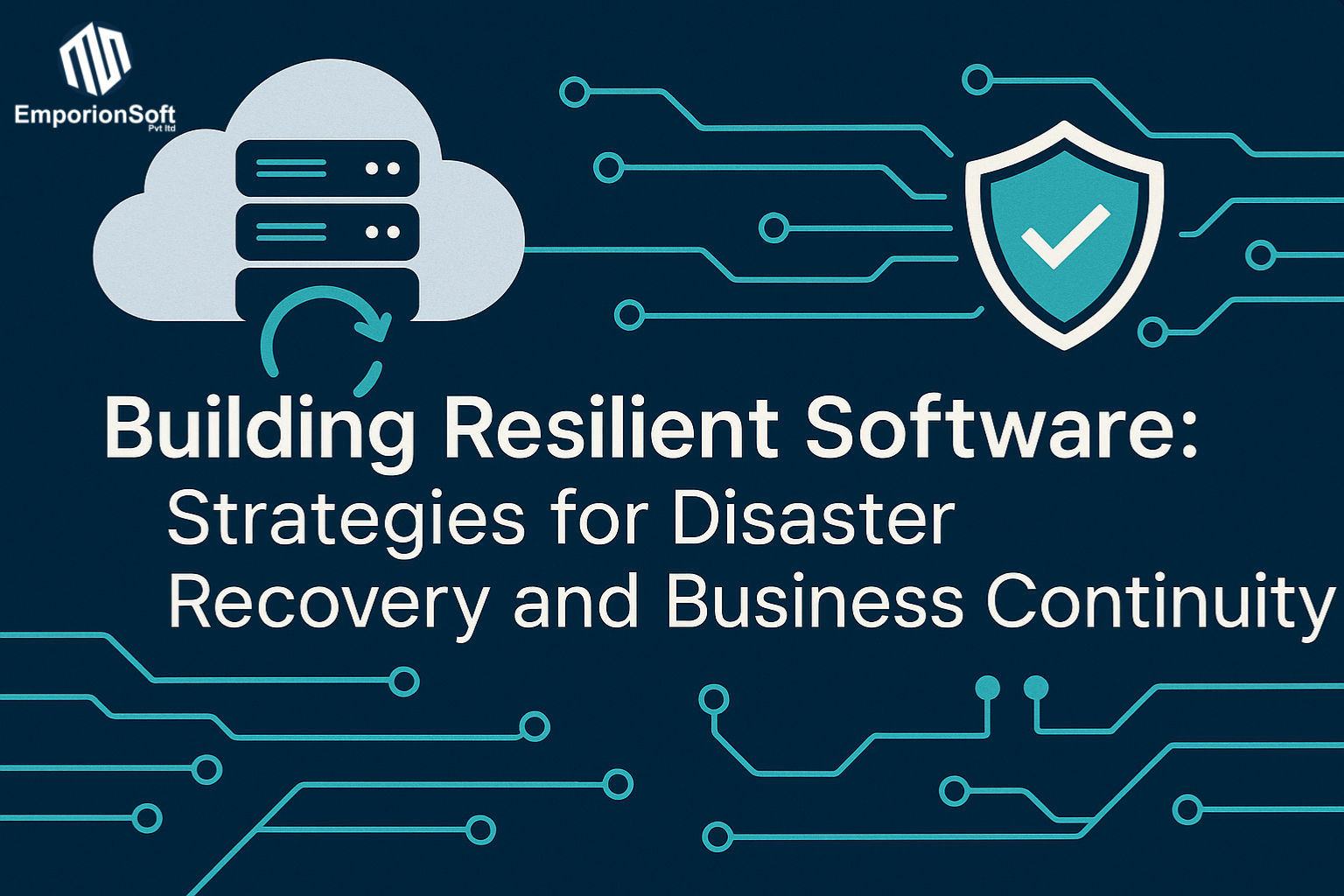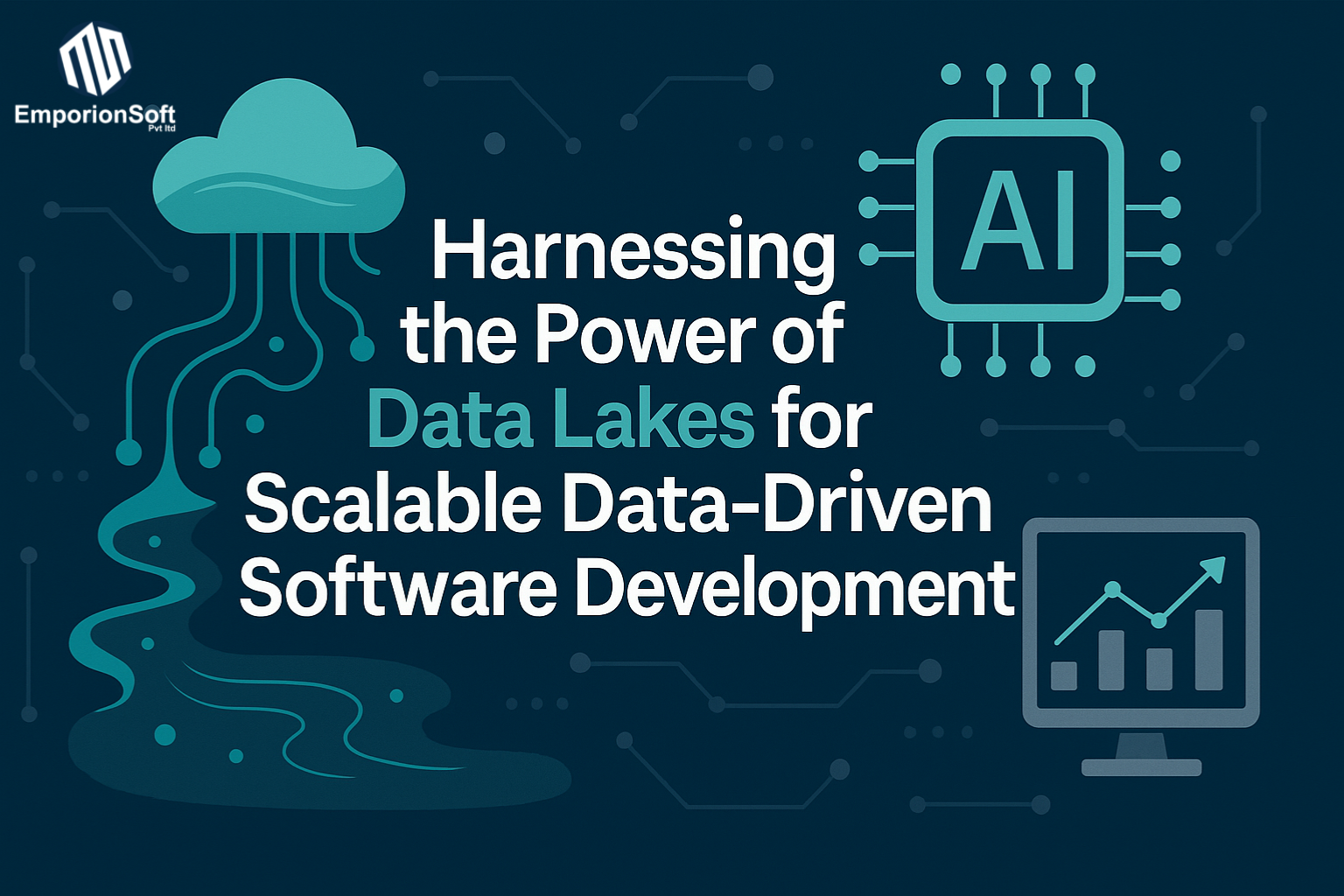The Future of Cloud Computing: Trends and Predictions Every Business Should Know
In an era where digital transformation defines the pace of success, the future of cloud computing has become a crucial topic for businesses aiming to secure a competitive edge. With cloud adoption soaring across industries—from finance and healthcare to retail and manufacturing—it’s clear that embracing innovative cloud technologies is no longer optional, especially for UK businesses striving for operational excellence.
Imagine this: You wake up one morning, open your laptop, and find that your business’s core systems have automatically optimised themselves overnight. Sales reports, marketing insights, cybersecurity alerts—all tailored, analysed, and secured effortlessly through intelligent cloud solutions. Sounds futuristic? This is precisely the future that cloud computing is shaping today. It’s not just technology; it’s a revolutionary shift that’s redefining how businesses operate, scale, and secure their digital infrastructures.
The future of cloud computing holds unprecedented potential, particularly as businesses in the UK face increasing pressures to innovate rapidly and securely. Recent developments and insights indicate a surge towards smarter, AI-driven cloud solutions, fortified cloud security measures, and versatile hybrid cloud environments. Why does this matter? Simply put, companies adopting these evolving trends today will be tomorrow’s industry leaders.
Across Britain, businesses are already witnessing the transformative benefits of adopting advanced cloud platforms. Enhanced agility, reduced IT overheads, improved data security, and powerful analytics capabilities—these are just a few of the advantages cloud technology brings. With IDC forecasting that global cloud expenditure will surpass $1.3 trillion by 2025, companies hesitant to adapt risk being left behind in a digitally progressive economy.
Throughout this comprehensive article, you’ll gain crucial insights into the defining cloud computing trends and cloud computing predictions expected to shape the digital landscape over the coming years. We will explore cutting-edge developments including:
- The rise of sophisticated Cloud AI and machine learning solutions.
- Essential improvements in Cloud Security addressing growing cybersecurity concerns.
- Why businesses in the UK and globally are increasingly transitioning towards Hybrid Cloud solutions.
- The crucial role of Cloud Automation in driving operational efficiency.
- Insights into innovative Cloud Solutions UK businesses are adopting for robust growth.
By understanding these pivotal developments, you will not only future-proof your business but position it to leverage significant competitive advantages that forward-thinking cloud adoption provides. After all, the future is not merely something to predict—it’s something to actively shape.
So, as we dive into the detailed sections ahead, ask yourself: Is your business ready to thrive in the future of cloud computing? The journey to cloud mastery starts here, today. Let’s begin exploring how your company can seize these evolving opportunities and lead the way in tomorrow’s digital-first landscape.
Current State of Cloud Computing
Today, cloud computing is not just a technological convenience—it’s a critical foundation driving business innovation, agility, and growth. As digitalisation accelerates, the latest Cloud Computing Trends reveal widespread adoption across industries, fundamentally reshaping how organisations manage data, applications, and infrastructure.
According to recent research by Gartner, global public cloud spending is expected to exceed $600 billion in 2025, demonstrating a significant leap from approximately $490 billion in 2022. This rapid expansion underscores the central role cloud computing now plays in global business strategies, particularly as organisations seek scalable, efficient, and secure digital solutions.
At present, three major cloud providers dominate the global market:
- Amazon Web Services (AWS): With approximately 32% market share, AWS continues to lead the cloud computing industry, widely favoured for its extensive services, flexibility, and robust security frameworks.
- Microsoft Azure: Following closely with around 23% of the global market, Azure is especially popular among enterprises due to seamless integration with existing Microsoft ecosystems and powerful hybrid cloud capabilities.
- Google Cloud Platform (GCP): Holding approximately 11% market share, Google Cloud has strengthened its position with advanced data analytics capabilities, AI-driven solutions, and a growing emphasis on sustainability and innovation.
These three providers alone command over 65% of the global cloud market, reflecting their significant influence on shaping current cloud computing trends and driving competitive innovation across various sectors.
In the UK specifically, the adoption of cloud computing has accelerated dramatically post-pandemic, with 88% of businesses now leveraging cloud services, according to the Office for National Statistics (ONS). This uptake reflects the growing recognition among UK enterprises of cloud technology’s role in achieving operational efficiency, agility, and strategic advantage.
Notably, the financial, healthcare, retail, and manufacturing sectors are embracing cloud computing at a record pace, using it to enhance customer experiences, optimise operations, and innovate at scale. Hybrid cloud deployments, enabling businesses to combine public and private cloud benefits, have become particularly prevalent, demonstrating the importance of tailored cloud solutions that align precisely with business requirements.
Yet, despite widespread adoption, many UK businesses face challenges in effectively integrating cloud solutions to realise their full potential. That’s where EmporionSoft (emporionsoft.com.af) plays a pivotal role. Specialising in cloud consultancy and solutions integration, EmporionSoft empowers UK organisations by:
- Providing bespoke strategies for cloud migration and optimisation.
- Enhancing cybersecurity through advanced cloud-native security measures.
- Delivering tailored training and support to ensure smooth adoption and maximal ROI.
Through expert guidance, innovative strategies, and an in-depth understanding of the latest cloud computing trends, EmporionSoft enables UK businesses to leverage cloud technology not just to keep pace but to thrive and differentiate themselves competitively.
In essence, the current state of cloud computing is one of expansive growth, rapid innovation, and essential strategic significance—especially for businesses intent on future-proofing their operations in an increasingly digital world. With dedicated expertise from providers like EmporionSoft, US companies are ideally positioned to capitalise fully on evolving cloud opportunities.
Emerging Trends in Cloud Computing
As businesses in the UK and beyond look to the future of cloud computing, several key trends have begun reshaping the digital landscape. Understanding and adopting these evolving cloud computing trends can position organisations at the forefront of innovation, efficiency, and competitiveness. Below, we explore three emerging trends critical to UK businesses: Hybrid Cloud Adoption, Serverless Computing, and Cloud-Native Architectures.
1. Hybrid Cloud Adoption: The Best of Both Worlds
Hybrid cloud combines the benefits of private and public clouds, offering UK businesses flexibility, security, and scalability. By integrating on-premises resources with cloud infrastructure, hybrid models address data sovereignty concerns—a key issue post-Brexit—allowing sensitive data to remain locally stored while leveraging public cloud power for less critical operations.
A recent survey from Flexera indicates that 82% of UK enterprises already employ hybrid cloud strategies, with another 10% planning adoption within the next two years. Companies like HSBC and BT Group are prime examples. HSBC successfully uses a hybrid approach to maintain compliance with stringent UK regulatory frameworks, securely managing sensitive financial data while leveraging public cloud scalability for analytics and customer service applications. Similarly, BT Group’s hybrid cloud implementation supports its rapid digital transformation, optimising both customer experience and operational efficiency.
2. Serverless Computing: Enhancing Efficiency and Cost-effectiveness
Serverless computing, often called Function-as-a-Service (FaaS), represents another pivotal cloud computing trend set to define the future. Serverless platforms eliminate infrastructure management by automatically allocating resources dynamically, enabling developers to focus purely on application logic rather than server maintenance.
According to Gartner, over 50% of global enterprises will have adopted serverless computing by 2025, driven largely by substantial cost savings and accelerated development times. In the UK, leading enterprises such as Tesco have embraced serverless architectures through AWS Lambda. Tesco streamlined its e-commerce platform, significantly reducing operational overheads and deployment times, thus enhancing customer experiences and responsiveness to market changes.
Furthermore, startups and SMEs across the UK increasingly adopt serverless computing, attracted by its pay-as-you-go model, which reduces initial capital investment and enhances scalability.
3. Cloud-Native Architectures: Built for Innovation
Cloud-native architectures, involving containerisation and microservices, represent another transformative trend influencing the future of cloud computing. Leveraging tools like Kubernetes and Docker, cloud-native approaches allow rapid, secure deployment of highly scalable and resilient applications.
IDC predicts that by 2027, more than 90% of enterprise apps will be cloud-native. The UK financial technology sector provides compelling examples of successful adoption. Starling Bank, a UK digital bank, has fully embraced cloud-native technology. Using containers and microservices, Starling rapidly launches new customer features, enhances security, and maintains system reliability, demonstrating cloud-native architecture’s power in driving business agility and innovation.
How These Trends Shape the Future
Together, hybrid cloud adoption, serverless computing, and cloud-native architectures illustrate that the future of cloud computing is flexible, scalable, and highly efficient. For UK businesses, adopting these technologies not only ensures compliance and security but also delivers significant competitive advantages—accelerating product development, reducing costs, and driving innovation at scale.
At EmporionSoft (emporionsoft.com), we help UK businesses navigate these emerging cloud computing trends, crafting bespoke strategies and providing tailored support. Through targeted expertise, businesses can transform their cloud journeys from simple adoption into powerful strategic advantages, securing their position at the leading edge of innovation.
By aligning with these trends today, businesses in the UK are effectively securing their digital futures tomorrow.
Artificial Intelligence (AI) and Cloud Integration
As businesses embrace the digital revolution, the intersection of Artificial Intelligence (AI) and cloud computing—collectively termed Cloud AI—has emerged as a powerful catalyst for transformation. By merging the scalability of cloud infrastructure with AI’s cognitive capabilities, UK businesses are gaining unprecedented efficiencies, deeper insights, and heightened innovation. Cloud AI not only unlocks actionable intelligence but also redefines the competitive landscape across multiple industries.
Key Use Cases of Cloud AI in Business
1. Automated Data Analysis
One of the most significant advantages of Cloud AI lies in its ability to automate complex data analysis. AI-powered cloud platforms swiftly handle massive volumes of data, identifying hidden patterns, trends, and anomalies that manual analysis might overlook.
For instance, UK-based retailer Marks & Spencer utilises cloud-driven AI analytics to forecast customer purchasing patterns. By leveraging real-time insights, the company can optimise inventory management, reduce waste, and personalise marketing campaigns effectively—leading to increased customer satisfaction and higher profitability.
2. Predictive Maintenance
Predictive maintenance, enabled by Cloud AI, significantly reduces operational downtime and repair costs. By analysing sensor-generated data from machinery and equipment in real-time, AI-driven cloud solutions predict potential failures before they occur.
Rolls-Royce, a notable UK engineering company, successfully integrates cloud-based AI to monitor its aircraft engines remotely. AI algorithms continuously analyse engine performance data, predicting maintenance needs precisely. This integration helps Rolls-Royce’s aviation customers avoid costly downtime and ensures operational reliability and safety.
3. Intelligent Automation
Intelligent automation through Cloud AI is rapidly transforming how UK businesses streamline repetitive tasks. Robotic Process Automation (RPA), combined with AI capabilities like natural language processing and machine learning, allows the automation of complex, human-like interactions.
A prime example is Barclays, one of the UK’s largest banks, which employs AI-driven cloud automation to streamline customer support and compliance processes. Chatbots and intelligent virtual agents handle customer queries efficiently, enabling faster responses, reduced workloads, and improved overall customer experiences.
Why Cloud AI Matters for UK Businesses
The integration of AI and cloud computing is a defining factor in the future of cloud computing, providing UK businesses with strategic advantages that were previously unimaginable. The scalability and elasticity of cloud infrastructure, combined with AI’s intelligent capabilities, create opportunities for continuous innovation, cost efficiency, and competitive differentiation.
How EmporionSoft Empowers Businesses with Cloud AI
Recognising the transformative potential of Cloud AI, EmporionSoft (emporionsoft.com) specialises in helping UK businesses implement tailored, AI-driven cloud solutions. With expertise in automated analytics, predictive maintenance strategies, and intelligent automation frameworks, EmporionSoft designs solutions that precisely match each organisation’s unique needs and industry requirements.
By partnering with EmporionSoft, UK businesses gain:
- Custom-designed AI-powered cloud strategies tailored to specific operational challenges.
- Expert integration of AI solutions with existing cloud environments, ensuring minimal disruption and rapid ROI.
- Continuous support and training, enabling seamless adoption and effective use of sophisticated Cloud AI tools.
Explore how EmporionSoft can empower your business with innovative cloud AI capabilities by visiting our comprehensive AI-powered cloud solutions page. Here, you’ll find detailed insights into our services and real-world case studies demonstrating measurable outcomes achieved through intelligent cloud transformation.
As AI and cloud technologies continue to advance together, businesses prepared to adopt these innovations will thrive in the digitally driven future. EmporionSoft is dedicated to positioning your organisation at the forefront of this transformation, ensuring your competitive advantage in the exciting era of Cloud AI.
The Rise of Hybrid Cloud: Transforming UK Businesses
The concept of Hybrid Cloud has gained significant momentum in recent years, becoming one of the most impactful developments in cloud computing. As UK businesses navigate complex challenges such as regulatory compliance, data sovereignty, and the demand for agility, the hybrid cloud model offers the ideal balance of flexibility, scalability, and security—critical factors influencing modern business strategies.
Why Hybrid Cloud is Gaining Popularity
Hybrid cloud environments blend the strengths of private and public clouds, allowing businesses to keep sensitive data secured on private or on-premises infrastructure while simultaneously benefiting from public cloud capabilities. According to IDC, over 80% of UK enterprises now operate some form of hybrid cloud infrastructure, reflecting a clear industry shift towards adopting flexible cloud solutions.
Several factors drive this rising popularity among UK businesses:
- Data Security and Compliance: Post-Brexit regulatory changes and the General Data Protection Regulation (GDPR) emphasise stringent data governance and sovereignty. Hybrid cloud models enable organisations to manage critical data securely on private clouds, maintaining compliance without compromising scalability.
- Cost Efficiency and Flexibility: Hybrid cloud allows businesses to scale their IT resources up or down based on real-time demand, reducing unnecessary expenditures. It offers a cost-effective approach by utilising public cloud resources for non-sensitive operations while reserving private infrastructure for confidential or high-performance applications.
- Optimised Performance and Innovation: Hybrid cloud enhances operational efficiency by enabling rapid innovation, streamlined development cycles, and seamless integration of new technologies such as AI and IoT—essential for maintaining competitiveness in fast-moving markets.
Industry-specific Examples of Hybrid Cloud Adoption in the UK
UK enterprises across various industries have successfully leveraged hybrid cloud environments:
- Financial Services: NatWest Group, one of the UK’s leading banking organisations, utilises hybrid cloud solutions to balance security and agility. Sensitive customer data is maintained securely on private clouds, while less critical workloads leverage the agility and cost-effectiveness of public clouds, ensuring both regulatory compliance and customer responsiveness.
- Healthcare: The NHS has increasingly adopted hybrid cloud solutions to manage patient records securely while using cloud-based platforms to deploy scalable telehealth services, significantly improving patient access to healthcare remotely and efficiently.
- Retail and E-commerce: Online retailer ASOS has successfully integrated hybrid cloud environments to manage fluctuating demand during peak shopping seasons. By combining private cloud infrastructure for critical payment processing with public cloud scalability for traffic spikes, ASOS delivers seamless, secure customer experiences.
Addressing Hybrid Cloud Challenges
Despite clear advantages, transitioning to hybrid cloud environments involves certain complexities:
- Integration Complexity: Combining private and public infrastructures requires careful planning and skilled execution to ensure seamless interoperability.
- Security and Compliance Management: Businesses must continuously monitor and secure data across multiple environments, potentially increasing operational complexity without proper management strategies.
- Skilled Expertise Requirement: Successful hybrid cloud migration demands specialised knowledge to manage infrastructure complexities and optimise cost efficiencies effectively.
How EmporionSoft Supports Seamless Hybrid Cloud Migration
To address these challenges effectively, EmporionSoft (emporionsoft.com) provides expert guidance and comprehensive support for UK businesses adopting hybrid cloud strategies. With proven expertise, EmporionSoft offers:
- Tailored hybrid cloud strategies that precisely match organisational needs and industry compliance requirements.
- End-to-end migration services, ensuring minimal disruption to business operations during the transition.
- Ongoing management, monitoring, and optimisation of hybrid cloud environments to ensure security, compliance, and cost-efficiency.
Through strategic collaboration with EmporionSoft, UK businesses can smoothly navigate the complexities of hybrid cloud migration, unlocking transformative benefits such as enhanced agility, reduced costs, improved security, and regulatory compliance.
In essence, the growing adoption of Hybrid Cloud reflects its unparalleled potential to drive innovation, flexibility, and competitive advantage. As the digital landscape evolves, UK businesses partnering with experienced cloud solution providers like EmporionSoft will be best positioned to thrive in an increasingly dynamic market environment.
Enhancing Cloud Security: Protecting the Future of Cloud Computing
As the future of cloud computing unfolds, Cloud Security has become a paramount concern for businesses across the UK. With increasing volumes of sensitive data migrating to cloud environments, ensuring robust security protocols has moved beyond merely important—it’s now essential. Businesses must proactively address emerging cybersecurity threats and stringent compliance regulations to secure their digital assets effectively.
The Critical Role of Cloud Security
Cloud security involves the protection of data, applications, and infrastructures associated with cloud computing. As organisations leverage cloud platforms to scale operations, enhance collaboration, and boost efficiency, the security landscape has significantly evolved, bringing new opportunities but also novel risks.
A recent survey by Cybersecurity Ventures revealed that global cybercrime could inflict damages totalling £8 trillion annually by 2025, making cloud security a vital strategic priority. For UK businesses, safeguarding data from breaches, preventing unauthorised access, and complying with data protection regulations like GDPR is now a business imperative.
Emerging Measures in Cloud Security
Several innovative measures are becoming crucial to robust cloud security frameworks:
- Zero Trust Architecture (ZTA): This emerging security model operates under the principle of “never trust, always verify,” continuously authenticating and authorising user access, regardless of their location or device. UK enterprises adopting Zero Trust significantly reduce vulnerabilities from cyberattacks such as ransomware or credential theft.
- Cloud Access Security Brokers (CASBs): CASBs function as gatekeepers, managing and monitoring data transfers between users and cloud services. They enforce security policies, ensuring sensitive data remains encrypted, secure, and compliant with regulations.
- Artificial Intelligence and Machine Learning (AI/ML): AI-driven threat detection and predictive analytics offer real-time identification and rapid response to threats, greatly improving cybersecurity resilience.
Compliance: GDPR and ISO Standards
In the UK and EU, cloud security compliance has been reinforced by strict regulations like GDPR, which mandates rigorous data protection standards, stringent privacy controls, and hefty fines for non-compliance (up to €20 million or 4% of annual turnover). Additionally, adherence to standards such as ISO 27001 for information security management helps businesses demonstrate compliance, strengthening client trust and corporate reputation.
Real-world Cloud Security Breaches and Responses
High-profile cybersecurity breaches highlight the need for strengthened cloud security:
- EasyJet Data Breach (2020): British airline EasyJet experienced a sophisticated cyberattack exposing the personal data of 9 million customers. In response, EasyJet enhanced its cloud security protocols, adopting advanced security analytics and continuous monitoring to detect anomalies swiftly and prevent future breaches.
- NHS WannaCry Attack (2017): This ransomware attack severely disrupted healthcare services, highlighting vulnerabilities in cloud and on-premise IT systems. Post-attack, the NHS implemented robust cloud security measures, including stronger encryption standards, regular cybersecurity audits, and comprehensive employee training programs.
How EmporionSoft Empowers UK Businesses with Robust Cloud Security Solutions
Understanding that robust cloud security is foundational to digital success, EmporionSoft (emporionsoft.com) provides tailored solutions to ensure businesses remain resilient against evolving cyber threats. With deep expertise in GDPR compliance, ISO certifications, and modern cybersecurity frameworks, EmporionSoft helps UK companies:
- Implement and manage Zero Trust frameworks tailored to specific business needs.
- Ensure comprehensive GDPR compliance through robust data governance strategies.
- Leverage AI-driven threat detection to proactively identify and mitigate risks.
- Conduct regular security audits and provide continuous cybersecurity training.
Through strategic guidance and robust cloud security measures, EmporionSoft safeguards clients’ data, applications, and infrastructure, allowing businesses to innovate confidently without compromising security or compliance.
As organisations look ahead to the future of cloud computing, one reality remains clear: Cloud security must be at the core of every cloud adoption strategy. Partnering with proven cloud security experts like EmporionSoft ensures UK enterprises not only protect their digital assets but position themselves confidently for sustained growth and success in an increasingly connected world.
Future Predictions for Cloud Computing: Preparing Your Business for Tomorrow
As cloud technology continues its rapid evolution, forward-looking businesses must remain agile, proactive, and strategically informed. By exploring carefully researched Cloud Computing Predictions, companies in the UK can anticipate emerging trends, technological breakthroughs, and shifting regulations, positioning themselves strategically for future success.
Below, we outline key predictions about the trajectory of cloud computing, highlighting significant innovations, changes in business practices, and regulatory shifts that will shape the landscape in coming years.
1. AI-Driven Cloud Innovation Will Accelerate
Artificial Intelligence (AI) is poised to become deeply embedded within cloud infrastructures. Advanced AI tools for real-time data analytics, cybersecurity threat detection, and intelligent automation will become standard offerings across cloud platforms, significantly enhancing business intelligence capabilities.
Gartner predicts that by 2027, AI-driven cloud applications will handle over 75% of all enterprise workloads, vastly improving efficiency and innovation capacity. UK businesses must prepare to harness these powerful AI integrations, which can radically transform everything from customer experience and predictive analytics to automated decision-making processes.
2. Multi-Cloud Strategies Will Dominate
Another major prediction is the widespread shift towards multi-cloud deployments. Companies will increasingly avoid single-provider dependencies, opting instead for diverse cloud solutions tailored to specific business functions. IDC forecasts that by 2026, over 85% of UK enterprises will adopt multi-cloud strategies to enhance resilience, optimise costs, and avoid vendor lock-in.
Businesses must proactively develop multi-cloud management expertise to optimise resource allocation, manage complexity, and maintain stringent data security standards. This strategic shift underscores the importance of engaging with expert consulting services, such as those offered by EmporionSoft, to effectively navigate multi-cloud environments.
3. Cloud Security Will Become a Regulatory Priority
Regulatory oversight surrounding cloud security and data privacy is set to intensify, driven by rising cybersecurity threats and data breaches. The UK government, along with EU counterparts, will likely introduce tighter regulations and compliance frameworks specifically targeting cloud infrastructures to enhance data security and sovereignty.
These anticipated regulatory changes mean UK businesses will need advanced cloud compliance capabilities, rigorous cybersecurity strategies, and clear, demonstrable governance structures. Companies failing to adapt risk severe reputational damage, regulatory penalties, and operational disruptions.
4. Sustainability and Green Cloud Practices Will Be Essential
Sustainability will significantly influence cloud provider choice and usage patterns, with a growing emphasis on reducing the environmental impact of digital technologies. As climate action becomes an increasingly urgent priority, UK businesses will face heightened scrutiny over their digital carbon footprints.
Major providers like AWS and Azure are already leading the way, committing to fully renewable-powered infrastructures. Businesses should expect future regulations demanding greater transparency in digital sustainability reporting, encouraging partnerships with cloud providers prioritising environmentally responsible practices.
5. Edge Computing and Decentralised Cloud Will Expand Rapidly
Edge computing—processing data closer to the source rather than centralised cloud data centres—will surge dramatically. This growth will be driven by increasing demand for low latency, real-time applications such as IoT, AR/VR, autonomous vehicles, and smart city initiatives. Gartner anticipates that by 2028, edge computing will handle over 40% of cloud workloads, especially in sectors like retail, manufacturing, and healthcare.
Preparing Strategically with EmporionSoft
Navigating these future predictions effectively requires strategic preparation, expert guidance, and advanced planning. EmporionSoft Pvt Ltd (emporionsoft.com) specialises in enabling UK businesses to remain ahead of evolving cloud trends, offering targeted support including:
- Comprehensive multi-cloud strategy planning and implementation.
- Expert guidance on regulatory compliance, data privacy, and cybersecurity.
- Integration of advanced cloud AI technologies tailored to business needs.
- Sustainability-focused cloud consulting, aligning technology choices with corporate environmental goals.
With expert advice and strategic support from EmporionSoft Pvt Ltd, businesses can confidently navigate these forthcoming transformations, leveraging innovation, compliance, and sustainable practices to secure their competitive advantage.
To explore how your business can strategically prepare for these emerging cloud trends, visit our dedicated consulting services page for personalised support.
In conclusion, embracing these insightful Cloud Computing Predictions today ensures your business remains resilient, innovative, and compliant, effectively positioned for success in the rapidly evolving digital future.
How Businesses Should Prepare for the Future of Cloud Computing
As the digital landscape rapidly evolves, proactively preparing for the future of cloud computing is critical for UK businesses aiming to secure long-term success. While cloud technology offers remarkable opportunities, leveraging its full potential requires strategic planning, specialised skills, and robust frameworks to navigate emerging complexities.
Below, we outline practical, actionable strategies that UK businesses should adopt today to thrive in tomorrow’s cloud-driven world:
1. Invest in Comprehensive Cloud Training
The rapid pace of cloud innovation necessitates continuous skill development. Investing in comprehensive cloud training ensures your teams remain proficient with the latest technologies, security protocols, and compliance requirements. Training enhances productivity, promotes innovation, and ensures effective utilisation of cloud resources.
Actionable Tip:
Offer tailored cloud-skills training programmes covering areas such as hybrid cloud management, cloud-native application development, and cloud security best practices.
2. Undertake Strategic Cloud Consultation
Developing a clear, forward-looking cloud strategy is foundational to leveraging the full potential of the future of cloud computing. Professional cloud consultation services help businesses identify optimal solutions, navigate regulatory complexities, and build resilient multi-cloud or hybrid cloud environments tailored specifically to their needs.
Actionable Tip:
Partner with cloud consultancy experts like emporionsoft.com to craft bespoke cloud strategies, ensuring your technology choices align with long-term business goals.
3. Prioritise Regular Security Audits
Cybersecurity threats evolve continuously, making regular security audits essential. Proactive security assessments identify vulnerabilities before they become threats, ensuring robust protection of sensitive data and critical business infrastructure. Regular audits help maintain compliance with regulations such as GDPR, protecting your organisation from costly breaches and penalties.
Actionable Tip:
Schedule periodic cloud security audits through trusted cybersecurity providers. Consider partnering with specialists like emporionsoft.com, who deliver comprehensive cloud security evaluations, vulnerability assessments, and ongoing threat monitoring.
4. Adopt Robust Cloud Governance Frameworks
Effective cloud governance ensures efficient resource usage, compliance adherence, and operational transparency. Implementing clear governance frameworks helps organisations manage complexity, control costs, and sustain accountability throughout their cloud environment.
Actionable Tip:
Implement governance tools and practices such as cloud cost management solutions, automated compliance monitoring, and clearly defined cloud usage policies. Engaging expert cloud governance consultants helps streamline this process effectively.
5. Embrace Automation and AI-driven Cloud Solutions
Integrating automation and AI-driven cloud technologies positions businesses at the forefront of the digital transformation. Intelligent automation of infrastructure management, resource scaling, and security monitoring reduces operational costs and accelerates innovation, driving enhanced competitive advantage.
Actionable Tip:
Explore opportunities for intelligent cloud automation in infrastructure management, DevOps processes, and security practices. Engage services from providers such as EmporionSoft Pvt Ltd, experts in designing and implementing cutting-edge AI-powered automation solutions tailored to your business.
How EmporionSoft Pvt Ltd Can Help Your Business Strategically Prepare
At EmporionSoft Pvt Ltd (emporionsoft.com), we specialise in enabling UK businesses to proactively prepare for the dynamic future of cloud computing. Our comprehensive suite of tailored cloud services includes:
- Strategic Cloud Consultancy: Tailored cloud strategies aligned specifically with your business needs, industry requirements, and regulatory compliance.
- Advanced Cloud Security Solutions: Comprehensive audits, robust governance frameworks, and continuous cybersecurity management.
- Specialised Training and Support: Customised training sessions to ensure your teams stay ahead of evolving cloud technologies and security threats.
- Cloud Automation and AI Integration: Intelligent cloud automation solutions designed to optimise operations, reduce costs, and enhance innovation.
By working collaboratively with EmporionSoft Pvt Ltd, businesses gain a strategic partner committed to guiding them effectively through the complexities of the cloud landscape. To explore how your organisation can strategically prepare for the future of cloud computing, visit our dedicated services page or contact our team directly via our contact page.
Taking Action Today for a Successful Tomorrow
In conclusion, preparing strategically for the future of cloud computing requires intentional, proactive investment in training, consultation, security, governance, and automation. Businesses that act decisively today with the support of expert providers like EmporionSoft Pvt Ltd will not only secure their operational resilience but also position themselves confidently to lead in the dynamic, innovation-driven digital future.
Conclusion: Embrace the Future of Cloud Computing Today
In this comprehensive exploration of the future of cloud computing, we’ve highlighted essential trends, emerging technologies, and strategic predictions shaping the landscape for UK businesses. From rapid advancements in Cloud AI and the widespread adoption of Hybrid Cloud environments, to essential innovations in Cloud Security and intelligent Cloud Automation, the cloud’s trajectory promises transformative impacts across industries.
The journey through these crucial insights clearly demonstrates that cloud computing is no longer simply a technological choice—it is an indispensable strategic asset for businesses aiming to thrive in a digital-first economy. Companies that proactively engage with evolving cloud computing trends are positioning themselves not merely to survive but to dominate their respective markets through agility, efficiency, innovation, and resilience.
UK businesses, in particular, face unique regulatory, operational, and competitive pressures that demand carefully tailored cloud strategies. Successfully navigating this complex landscape means choosing sustainable, secure, and innovative cloud solutions, staying compliant with stringent regulations, and leveraging intelligent automation and AI-driven insights to accelerate growth and profitability.
This strategic journey need not be undertaken alone. EmporionSoft Pvt Ltd (emporionsoft.com) is uniquely positioned to partner with your organisation, providing expert guidance, specialised support, and tailored cloud solutions precisely matched to your business requirements. Whether you’re exploring hybrid cloud migration, strengthening cybersecurity measures, implementing intelligent cloud automation, or adopting AI-driven analytics, our experienced team can deliver the insights and solutions your business needs.
Now is the ideal time to take decisive action. Don’t wait until competitors gain the upper hand—act now to ensure your organisation is prepared, resilient, and positioned for sustainable success.
Take the Next Step Today!
Ready to future-proof your business with cutting-edge cloud solutions? Take advantage of our expert guidance and bespoke services at EmporionSoft Pvt Ltd. Our dedicated specialists are here to understand your specific challenges, tailor innovative cloud strategies, and ensure seamless implementation.
Contact EmporionSoft Pvt Ltd today to discuss how we can support your journey into the exciting future of cloud computing. Your future success starts with one simple, powerful step—connecting with us.
Together, let’s shape a digital future where your business not only adapts to change but leads the way.










